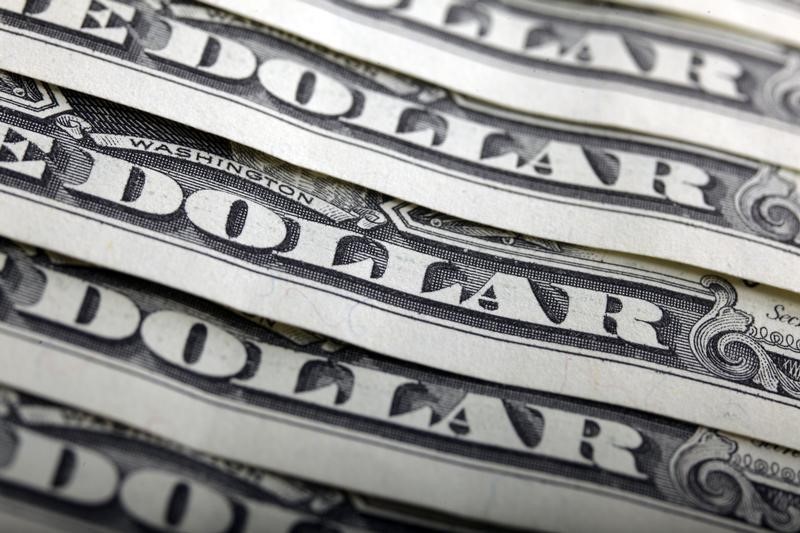By Peter Nurse
Investing.com - The dollar pushed higher in early European trade Thursday, with investors willing to head back towards this safe haven after the Federal Reserve’s dreary economic outlook.
At 3:10 AM ET (0710 GMT), the dollar index, which tracks the greenback against a basket of six other currencies, was up 0.4% at 96.318. USD/JPY traded largely unchanged at 107.09, but GBP/USD dropped 0.7% to 1.2656.
The U.S. central bank projected late Wednesday that the U.S. economy would shrink 6.5% this year and the unemployment rate would be 9.3% at year's end.
That was a gloomier view than many in the market had expected, particularly after Friday’s shock employment report, and sent investors out of stocks, away from riskier currencies and towards bonds and the dollar.
The Australian dollar retreated from an overnight 11-month high, dropping 1% to $0.6929, the New Zealand dollar gave up a four-and-a-half month high and fell 0.7% to $0.6493.
That said, with the Federal Reserve indicating that its loose monetary policy is set to stay for the long haul, this dollar strength is likely to be a temporary phenomenon.
“The broad trade weighted dollar is within a whisker of return to the mid-March lows, right before the USD funding markets seized up and the dollar hoarding story developed,” said ING, in a note to clients.
“No doubt investors are jumping on the view that the FOMC median expectation was for unchanged Fed rates right through 2022, maintaining demand for higher yielding assets.”
EUR/USD fell 0.1% to 1.1358, only registering small losses after hitting a three month peak overnight.
The single currency has been boosted of late by signs of the continent’s countries working together to combat the coronavirus, with the EU's executive Commission proposing a hefty recovery fund, made up of grants and loans for every EU member state.
The Eurogroup, a grouping of E.U. finance ministers, is set to meet later Thursday, to discuss the EU recovery fund.
However, “given the differences between the EU commission and e.g. the Netherlands and Austria, the proposal for the recovery fund needs some work before it can be passed in the various parliaments,” analysts at Danske Bank wrote, in a research note.
